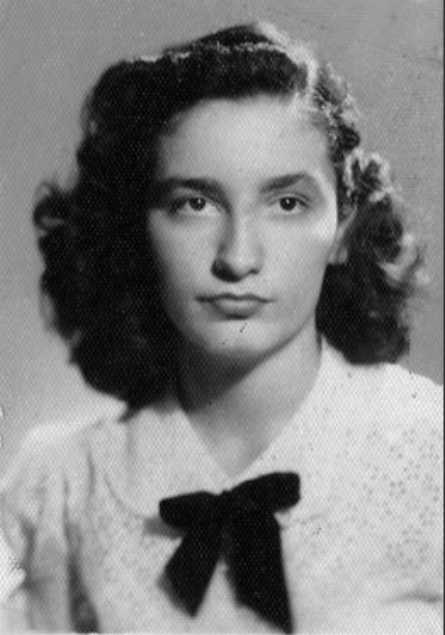4.1.2.10.1 The first poetic works of Fina García Marruz (1923 – )

Fina García Marruz’s first collections of poems were titled “Hora temprana” (Early Hour) and “Poems,” both from 1942 and published by Bella García Marruz, Cintio Vitier, and Eliseo Diego to celebrate her 19th birthday. There are also other pieces dating from the 1940s and 1951, which she published much later under the title “Umbral” in her complete works.
In “Early Hour,” appears what the author considered her first poem, leaving behind her previous attempts at versification. This poem was titled “Bucolic.” Although it does not deal with peasant issues, its lines outline some of the topics that would recur in her discourse, such as the need to find herself in the configuration of reality and poverty not from an economic perspective, but rather associated with the purity of forms that are sufficient per se:
“In this valley –Lucero
dull, cold – the distance
eternal that I lack.
When I am, trees
of deserved gold without history,
you, everything, myself.
Would it fill me with myself?
without filling myself with you?
The foliage of the favorite autumn
will replace lukewarm faces.
And will become more distant
the ancient and ironic air
the only faithful gold that he brought me,
poor like me, to the world,
in the melancholic room.”
“Early Hour” consists of more than 60 poems, in which the intensity of his explorations into the ultimate substance of poetry can already be appreciated, not as a mere exercise in rhetoric but in its relationship to the surrounding reality. Nor does he cultivate a strictly social poetry, seeking to go beyond what is manifest, not purist essences, but truths imbued with an inherent beauty.
The short poem “Rhetoric” already bears his conception of the authentic lyricism of words:
“Rhetorician is that
that surrounds things with words.
He is a poet
for whom reality surrounds
to the single Word.”
However, prior to the conception of what the author considered her first poem, she had already published poems in 1938 in the “Revista de Solidaridad” (organ of the Association for Aid to Children of the Spanish People) and in Cúspide, respectively, under the titles “Aviones” and “Esquema de un cuento” (Outline of a Story), the latter in poetic prose. In both, the ferment of a poetic exploration of reality and beauty can already be seen.
Her work entitled “Poemas” (Poems), from 1942, already condenses a poetic expression where the experiential and the purely lyrical adopt a fruitful counterpoint, a delicate balance between essence and verbal workmanship that would be one of the constants of her work, also associated with the religiosity that is at the base of her interactions with reality and therefore in the construction of a beauty that for the author will always have a breath of divinity.








